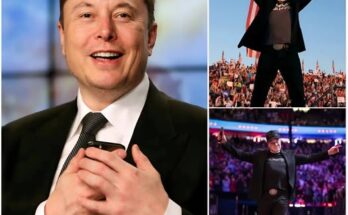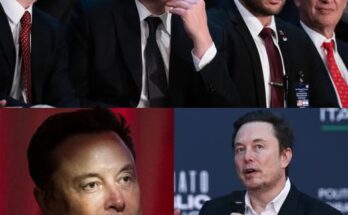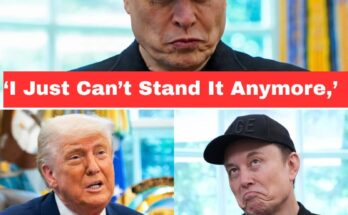Washington, D.C. — In a spectacle that has captivated the nation, tech titan Elon Musk and White House trade adviser Peter Navarro have ignited a fiery public feud over the Trump administration’s aggressive tariff policies. The spat reached a boiling point when Musk labeled Navarro a “moron,” prompting the White House to dismiss the clash with a nonchalant “boys will be boys” comment, leaving many questioning the administration’s stance on internal discord.
The Genesis of the Feud
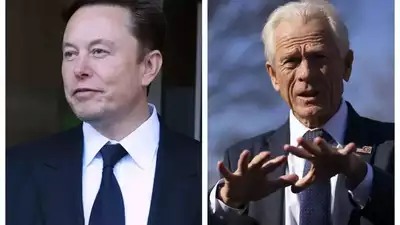
The controversy erupted following President Donald Trump’s decision to impose sweeping tariffs, including a staggering 104% levy on Chinese imports, a move that has sent shockwaves through global markets . Elon Musk, CEO of Tesla and SpaceX, took to social media to voice his vehement opposition, advocating for zero tariffs and increased labor mobility between the U.S. and Europe. During a livestream at an Italian conference, Musk criticized the tariffs, arguing that they hinder international trade and innovation.
In response, Peter Navarro, the architect behind Trump’s tariff strategy, appeared on CNBC to defend the administration’s position. Navarro dismissed Musk’s concerns, suggesting that Tesla merely assembles vehicles using imported parts and lacks substantial manufacturing within the U.S.
Musk’s Scathing Rebuttal
Musk did not take Navarro’s remarks lightly. In a series of scathing posts on X (formerly Twitter), he lambasted Navarro’s credentials and understanding of the automotive industry. “Navarro is truly a moron. What he says here is demonstrably false,” Musk asserted, highlighting a Cars.com study that ranked Tesla’s vehicles among the most American-made. He further ridiculed Navarro, stating, “Navarro is dumber than a sack of bricks”.

Navarro’s Counterattack
Navarro, known for his hawkish stance on trade, dismissed Musk’s criticisms as self-serving. He suggested that Musk’s opposition to the tariffs stemmed from a desire to protect Tesla’s reliance on inexpensive foreign components. Navarro downplayed the market turmoil triggered by the tariffs, confidently predicting that the Dow Jones Industrial Average would soar to 50,000 during Trump’s tenure.
White House’s Dismissive Response
Amid the escalating war of words, the White House sought to downplay the significance of the dispute. Press Secretary Karoline Leavitt addressed the media, remarking, “Look, these are obviously two individuals who have very different views on trade and on tariffs. Boys will be boys, and we will let their public sparring continue” . This cavalier attitude has raised eyebrows, with critics arguing that such a dismissive stance undermines the gravity of the policy debate and the potential economic ramifications.
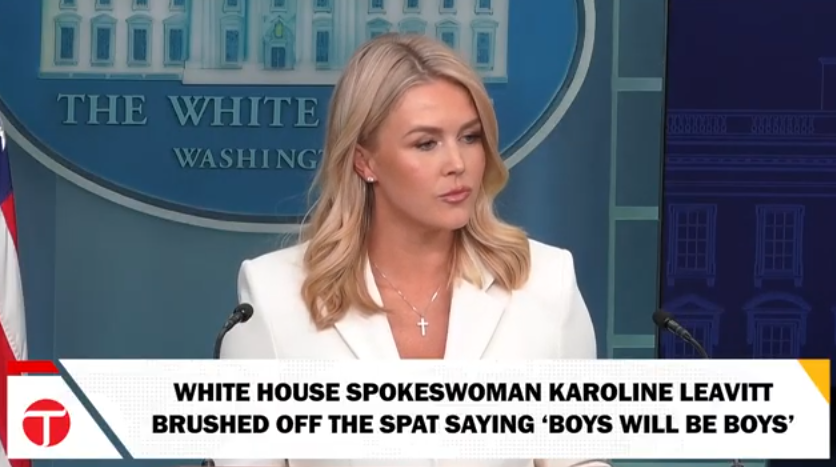
Economic and Political Fallout
The Musk-Navarro clash unfolds against a backdrop of heightened economic anxiety. The implementation of hefty tariffs has led to a sharp decline in the stock market, with major indices experiencing significant drops . Economists warn that the escalating trade war could precipitate a recession and result in substantial job losses.
Politically, the feud has exposed fissures within the Trump administration’s approach to trade. While Navarro champions protectionist measures, figures like Musk advocate for freer trade policies, highlighting a lack of consensus on the best path forward.
Public and Industry Reactions
The public spat has elicited a spectrum of reactions. Supporters of Musk praise his forthrightness in challenging policies they view as detrimental to innovation and economic growth. Conversely, proponents of Navarro’s stance commend the administration’s efforts to bolster domestic manufacturing and address trade imbalances.
Industry leaders express concern over the uncertainty generated by the feud. The tech and automotive sectors, in particular, fear that prolonged disputes and aggressive tariff strategies could disrupt supply chains, inflate costs, and stifle competitiveness.
